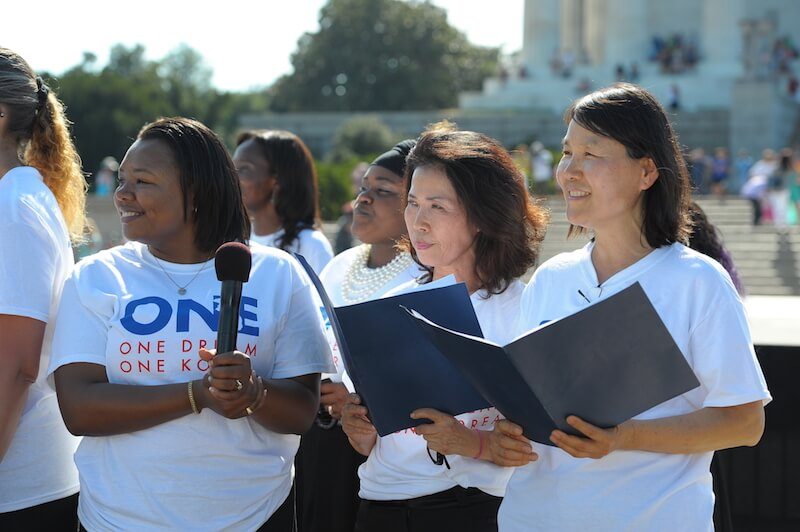The Case for Korea: Why the World Should Care
Considering all that is going on in our world today, why should anyone care about what happens on the Korean Peninsula? Why are people like German Chancellor Angela Merkel, UN General Secretary General António Guterres, Chinese President Xi Jinping and U.S. President Donald Trump weighing in on the situation?
This question is actually not a new one. In 1921, Herbert Adolphus Miller published, “The Case of Korea,” that asked this very question about Korea. It was at the close of World War I when Miller wrote, “There can be no peace in the Pacific without settling justly the question of the independence of Korea and protection of Japan.” Global response at the time, however, was minimal.
Almost 100 years later, the situation on the Korean peninsula has grown more acute and, as a result, unresolved issues there have now brought about a situation that could have been resolved had more people had the will and foresight to do so. As it stands, Korea remains the last unfortunate bastion of all the failed experiments of the 20th Century: the remnants of the Cold War divisions, the backlash of colonization, with a plethora of unresolved issues from WWII and the Korean Civil War.
For all these years, Korea has been a nation on “pause.” The uneasy truce of 1953 turned the nation into two armed camps, poised for a resumption of hostilities at any moment. The Demilitarized Zone at the 38th Parallel bisects the peninsula, creating a fiercely guarded border of several miles width cutting off every form of interaction between the people. Yet amidst these dire circumstances there is still the possibility that a peaceful civil-society led reconciliation and reunification process could finally bring to a close to these unresolved issues and open a new chapter of global history.
The human rights issue, alone, invites world attention. The North has the worst human rights record of any place on earth today. Modern-day slavery, martial law, imprisonment, executions, economic controls, and suppression of free speech, press, faith and assembly are the tools used against the North Korean people, demonstrating an utter disregard for the safety, development or health of the people.
Massive poverty and famine has accompanied the isolation and total government control of the citizenry. Access to electricity, technology, travel and information is rigidly controlled. The average lifespan is more than 10 years shorter than their compatriots to the south. The recent rush for nuclearization underlines the self-destructive thinking of the North; it both impoverishes the people and endangers them. Starving and enslaving one’s own people to build weapons of mass destruction is a lose-lose system.
However, even though the GDP of the South is an 18-fold difference of scale, $1,800 to the South’s $33,200, it is not a perfect model. After 40 years of occupation and war, the impoverished South built itself economically to the position of one of the G12 nations, a part of the developed world. Koreans fondly refer to this meteoric rise as the “Miracle on the Han River.” Yet, the economic development took place at the expense of traditional values. Sadly, the South lost the solidity of the basic unit of Korean society—the extended family. Instead, giant enterprises, chaebols, took precedence, putting profit over people and directly contributing to an education system that prizes test scores and jobs above character or creativity. Building economic prosperity that leaves the elderly stranded and young adults hopeless is also a dead end.
The Korean dilemma requires an entirely new approach. The solutions cannot be found in either one of the two existing systems. In many ways, Korea is a microcosm of the issues being faced by humanity as a whole.
What would it mean to the world’s people if Korea were to be established as a nation of free and self-determinant people who are motivated, not just by a vision for national independence, but to build a nation that benefits the world?
A successful Korean unification process would become a replicable model that could be applied to other volatile situations. The elder statesmen of such a process could share the lessons learned in Korea to others’ efforts to honor human rights, dignity and self-determination. Moreover, the developments in the Korean Peninsula represent an opportunity for the global community to realize humanity’s dream of peace and prosperity.
The “Peace Dividend,” of a free and united Korea would open an entirely new employment and consumer market to the world. Military investments could be moved into infrastructure for transformation and communication development. A destination, long closed to world travelers, would open up as well. A peaceful neighbor would be a boon to China, Mongolia, Japan and the larger Pacific community.
Out of the terrible circumstances of the last century, Koreans can forge a new model of resilient nationhood, based on shared values and culture, that can be a “light unto the nations” around the world.
The choice is not between South and North, but between principles and their consequences. Peace, human rights, dignity and value are one choice; Destruction, exploitation and loss are on the other. Humanity itself hangs in the balance.
The Korean Dream is linked, intrinsically, to the dream of all humanity.
That is why the world needs not only to care, but to act in support of efforts towards Korean reunification and reconciliation.



